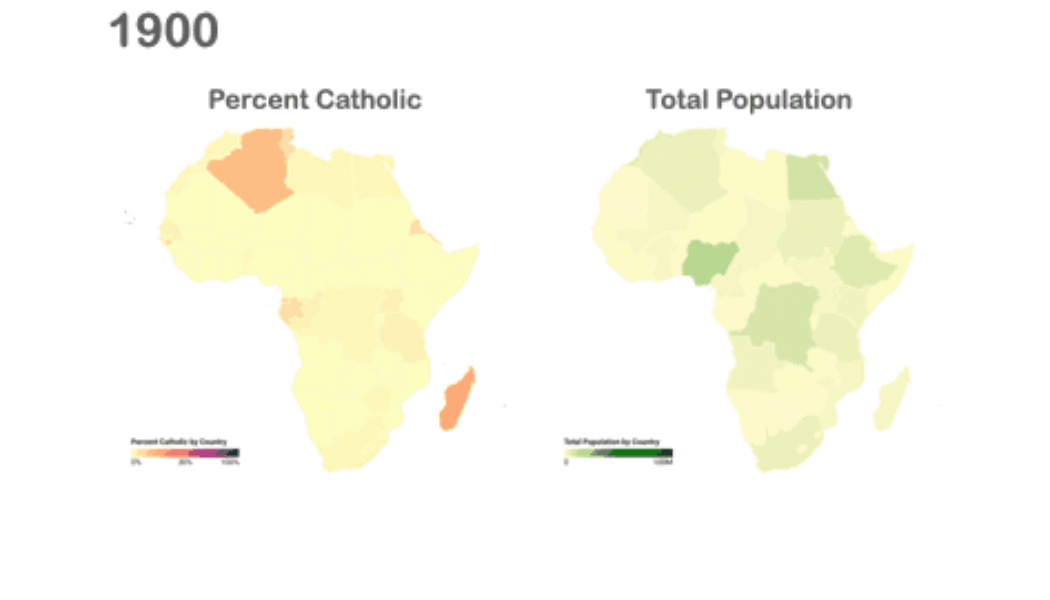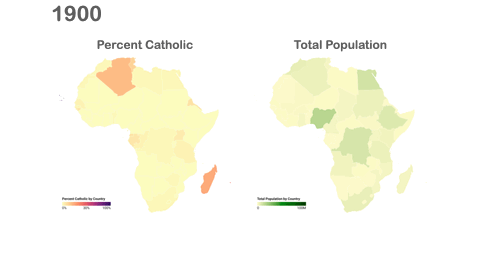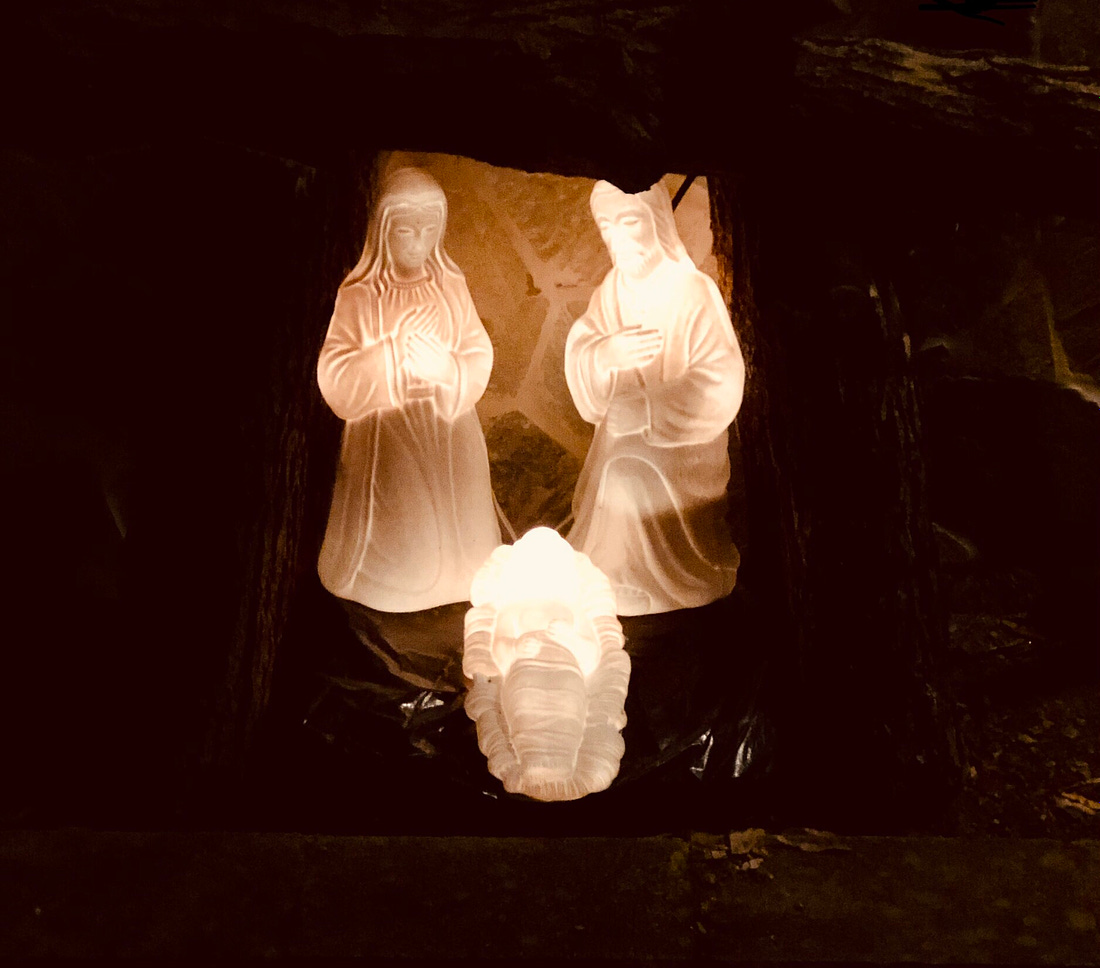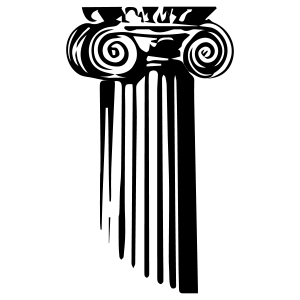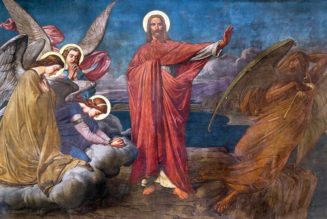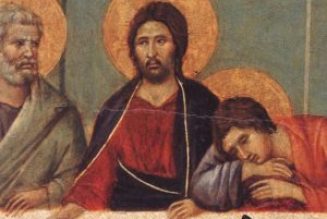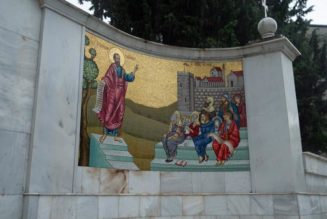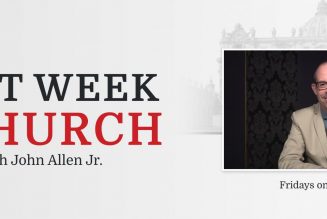Happy Friday friends,
It’s New Year’s Eve, if you’re into that sort of thing. If you’re not, good for you — let’s call it the vigil of the Feast of Mary, Mother of God.
I’ve never been one for going out on Dec. 31, and never really understood the attendant hoopla. On the eve of the new millennium, I made the effort to mission it into central London, having been convinced that it would be the sort of thing I’d later want to be able to say I was there for. It wasn’t, and I caught the train home after one hour and one ruinously expensive beer.
Don’t get me wrong: I’ve always been a fan of big fireworks displays, but what is it about the changing of the calendar that inspires public event organizers the world over to ruin them by blasting Eurotrash EDM and late-career U2 albums into the crowd?
Anyway, while we at The Pillar have been trying to keep the whole feast of Christmas with our families, that doesn’t mean we’ve knocked off altogether. So, for those of you expecting some tedious, end of year listicle — sorry to disappoint you, the real news hasn’t stopped:
Quick links
Demography is destiny, so we are often told. And by any demographer’s estimation, the future of the Church is Africa.
What he found is two different stories: the conversion of sub-Saharan Africa in the first half of the 20th century, and the growth of Africa’s population — unique among all regions of the world — in the 21st.
Within the next thirty years, Africa is set to make up about a third of the global Church — and that’s a big deal.
Read the whole report for a glimpse behind the headline numbers, and what they mean.
—
Politicians, columnists, talking heads, and other breeds of public attention-seekers, like to season their discourse with references to concepts like “Marxist socialism,” “late-stage capitalism,” and “Catholic Social Teaching.”
Gustafson is a pretty fascinating guy. Born and raised on a farm, he’s gone on to have a career in academia and an almost accidental vocation as a landlord in Omaha. His thoughts on the true meaning of charity, and how to form a business mind in the Catholic tradition, are well worth reading in full. Here’s a teaser:
“There are market dynamics due to globalization which are like nothing we’ve ever known before, these frequently lead to nationalism and a focus on protect-our-own.
The world seems dangerous and scary, particularly with all the fast moving technology changes which at times seem to make the ground move beneath our feet. So it can be easy for companies to focus primarily on survival at any cost, and for individuals to take a me-first approach. In times which seem threatening, it is harder to practice open-handed generosity…
I still find that most of my students want to be fully human — they tend to want to be kind, decent people, and they have a general sense that if they are blessed with much, they do have some social obligation to share with the less fortunate.”
News from the East
The Chinese government continues to turn the screws on the last vestiges of a free Hong Kong, and further clear the way for the territory’s effective incorporation into mainland life and governance.
Seven people connected to Stand News, a pro-Democracy publication, were arrested in raids carried out by national security police on Wednesday, and charged with conspiracy to produce “seditious publications.”
Among those arrested were Stand’s former acting editor-in-chief, and several members of the board of directors — including Margaret Ng, the barrister and former Hong Kong legislator, and Ronson Chan, an editor at Stand News and the chair of the Hong Kong Journalists’ Association.
With its assets frozen and its offices raided, the publication has now been effectively shuttered, and its social media accounts have already been deleted.
News of the raids was followed by a report this week from Reuters, which said that Hong Kong’s Catholic clergy had been given a briefing by mainland prelates in October, outlining the Communist government’s vision for religion in Chinese society.
The meeting, in which President Xi was pointedly not mentioned by name, took place in the run up to the installation of Hong Kong’s new bishop earlier this month.
As apostolic administrator, his predecessor, Cardinal Tong, issued warnings to both clergy and Catholic school teachers about keeping clear of anything touching politics, and Hong Kong clergy have told The Pillar that wider social and political tensions run through the local Catholic population, too.
One of the more important Church stories of 2022 is going to be the fate of the Diocese of Hong Kong — can Bishop Chow preserve its independence, or will it be drawn under the aegis of the Vatican-China deal?
Something else to consider is: what will happen to Chow himself?
By custom, the Bishop of Hong Kong is made a cardinal, and both of Chow’s living predecessors, Cardinal Tong and Cardinal Zen have passed out of voting age for a future conclave, clearing the way for Chow to join the College of Cardinals.
On the one hand, neither the Vatican nor the Chinese government may favor putting Chow under an enhanced international spotlight along with a red hat, given the deteriorating political situation in Hong Kong and the critical coverage this brings to both parties over the Vatican-China deal.
On the other hand, does the Vatican really want there to be no Chinese voice in the next conclave, and is Beijing prepared to suffer the loss of face a snub for Chow would imply for their handling of Hong Kong affairs?
We will have to wait and see.
Frozen assets
Last week, we wrote about some Christmas cheer for Raffaele Mincione, the businessman who sold the Holy See’s Secretariat of State the now-infamous London building — he’d turned a tidy profit on a Parma ham business.
But it wasn’t all good news for Mincione this holiday season. This week, the Zürich newspaper Neue Zürcher Zeitung reported that his application to unfreeze several Swiss bank accounts was denied by the Federal Supreme Court.
The accounts, amounting to some 57 million euros, were first frozen in April 2020, on request from Vatican investigators, during their probe into the secretariat’s financial affairs. Mincione was among those indicted by prosecutors in July of this year, but the charges against him and five others were reopened in November, after pre-trial arguments about failures to follow due process by the prosecution.
Vatican authorities have been told by the judges to either refile the charges against Mincione, or drop them altogether, by the time the court next meets in January. While defense attorneys have tried to play up the reopening of the investigative phase as a kind of vindication for the accused, courts in the UK, Italy, and now Switzerland, have all held firm in deferring to the Vatican prosecutors, who remain confident in their case.
There’s never a dull moment in the Vatican financial trial. We will keep bringing you every twist and turn as it happens, so stay tuned in 2022.
On the sixth day of Christmas…
As we wrote about earlier this week, Christmas isn’t over — whatever your local retail outlet may insist on telling you. But the temptation to live the feast only in anticipation, and not linger over it in the octave, is not just a question of bad marketing.
One temptation to which I am certainly prey is looking ahead at the work to be done without accepting the times of rest and reflection which the Church allocates for our spiritual health. In part, I can blame this on the restless anxiety of self-employment, but only in part.
To always be looking ahead to the next season, the next task, the next thing, whatever thing it may be, means I often overlook moments when I should be pausing to reflect with profound gratitude for where I am and what I have been given. This was certainly a risk I could have run this year at Christmas.
As it happened, though, this year I was obliged to lower my horizon to the here and now, and give up a lot of the plans I had concocted to keep myself busy during the octave: our family came down with the dreaded lurgy on Christmas morning and we’ve been passing the contagion around between the three of us ever since.
Things got serious enough that for Christmas Day dinner, instead of the goose and ribeye steaks I had laid in for the day, I dined solo on champagne and scrambled eggs.
As a sidebar — this is hardly a suffering, I realize, and if the combination doesn’t immediately appeal to you it’s probably because you don’t know the proper way of making scrambled eggs.
But I had been looking forward to making and sharing with you my recipe for Brussels sprouts, which is the only known mechanism for rendering those vegetable tumors edible. Maybe I’ll include it at the end of this newsletter, as a treat.
Anyway, I have no idea if we’ve all just got miserable colds, or if we have caught the current flavor of Covid. While some have asked me if we’ve been tested, dragging myself, streaming and hacking, to a series of crowded pharmacies in search of short-supply test kits to satisfy my curiosity seemed borderline sociopathic to me — especially since it wouldn’t change the necessary course of action either way.
Being sick at Christmas has meant the cancellation of travel plans and forgoing much of the ambitiously crowded schedule I had drawn up for this week, which is a shame. It’s also meant a definite lack of sleep, what with my own nose trying to waterboard me if I dare to lie down, and the baby making it known at all hours that she’s not having a great time of it herself.
But it has also meant my wife and I have done something we’ve always talked about doing but never done in the whole of our marriage: just stayed home and lived the feast as a family, give or take some feverish spells.
Right before the illness set in, we had the supreme gift of having a private Mass said in our home on Christmas Eve. Having the feast boiled down for us to the simple majesty of the sacrament and our little family of three was something I will not soon forget.
In the Gospels, Our Lady is often keeping silent, treasuring and pondering things in her heart, and St. Joseph was a sufficiently reflective character that he isn’t recorded ever saying anything at all. With the Lord so miraculously in their midst, they had a lot to leave them speechless, I suppose.
Well, He is no less born for us — for me and for you — this Christmas, and I am profoundly grateful for being given the quiet to appreciate it a little more this year.
See you next year,
Ed. Condon
Editor
The Pillar
Brussels Sprouts au Pillar:
Ingredients:
2 lbs. Brussels sprouts
2 cloves garlic, finely chopped
2 lbs. smoked bacon, thick cut
1 cup medium sherry
1 leek, roughly chopped
50g butter
Preparation:
Trim and halve the sprouts.
In a skillet or other heavy bottomed pan, melt the butter and sweat the garlic.
Add the sprouts and leek, toss infrequently over a high heat to allow them to caramelize.
When the sprouts are browned, add the sherry in shots to deglaze the pan and remove from heat.
Scrape the contents of the pan into the nearest kitchen waste bin.
Return the pan to the heat and add the bacon, turn as necessary.
Serve hot.
Join Our Telegram Group : Salvation & Prosperity
